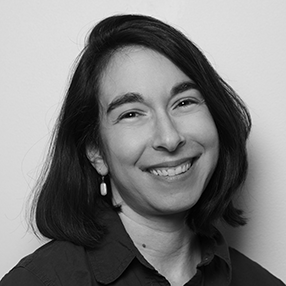I was not thinking of Russia
or the Holocaust or eugenics
when I picked the donor
from an online catalog like
I was ordering a new pair of shoes.
I don’t mean to sound blasé.
It was more complicated than that.
But by the time spring came
and the third failed IVF, I didn’t care
about SAT scores or eye color;
I wanted any embryo that latched
to my uterine wall and grew.
The German philosophy major,
the filmmaker from California, even
the one whose favorite food was pork.
What did genes matter? I already knew
I’d name my second child for dead relatives
from the old country, the ones
who made it out before the camps.
My uterus washed with grief, empty
kiddush cup after the seder.
That was the only time I really prayed.
That day when I paced outside,
waiting for a call from my doctor
with good news, eggs and sperm
married in a petri dish, an offering
from a Midwestern girl
with ovarian abundance and kind eyes
who knew to look away.
Copyright © 2023 by Robin Silbergleid. Originally published in Poem-a-Day on August 14, 2023, by the Academy of American Poets.
“For several years I have been working on a book, tentatively titled ‘The Old Country,’ about family history and Russian-Jewish immigration at the turn of the twentieth century. As part of this project, I have been reflecting on, and reconsidering, the practice of genealogical research and the creation of a ‘family tree.’ This poem is one attempt at thinking through the complicated nexus of chosen single motherhood, assisted reproductive technology, and the legacies of intergenerational trauma and the Holocaust.”
—Robin Silbergleid

